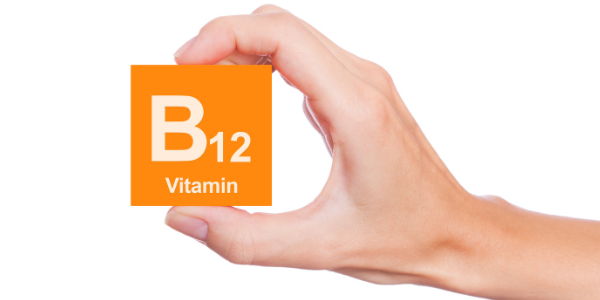Vitamin B12 is among the most important vitamins for a healthy diet. It contributes to the health of sensory neurons and red blood cells, which transport oxygen throughout our bodies. The vitamin also improves digestion and keeps your immune system robust. Unfortunately, you can acquire B12 deficiencies like anemia or dementia if you don’t get adequate vitamins in your diet.
It becomes more difficult to absorb B12 from food sources as you become older. As we age, our bodies create less stomach acid, which is required for digestion. It’s harder for the body to break down food and absorb nutrients, including B12, if there isn’t enough stomach acid.
What Causes the Deficiency?
Vitamin B12 is water soluble, and it plays a role in forming red blood cells. The vitamin also aids in proper nerve function and DNA synthesis.
A common cause of B12 deficiency is an inability to absorb enough of this nutrient from food due to pernicious anemia or autoimmune gastritis. This condition causes your body’s antibodies to attack the stomach lining, which prevents your body from properly absorbing B12 from food. In addition, older adults may need greater amounts of B12 because their bodies produce less stomach acid as they age.
Other causes include:
- Diseases affecting the stomach or small intestines like Crohn’s or celiac disease
- Surgery on the stomach or small intestine
- An autoimmune disorder called pernicious anemia (PA)
- Taking medications that hinder the absorption of the vitamin
- Have reduced stomach acid production due to medication use (for example, proton pump inhibitors), gastric surgery or other reasons
Common Symptoms of the Deficiency

- Overall body weakness
- Loss of vision
- Loss of balance and coordination
- Depression or other mood changes and irritability
- Shortness of breath with exertion
- Poor balance and unsteady walking
- Loss of appetite and weight loss (without trying)
Benefits of Vitamin B12 In Our Bodies
The vitamin plays an important role in producing red blood cells, carrying oxygen throughout our bodies. It also helps maintain healthy nerve function and brain function. The most important benefits are:
- Supports Cognitive Function: B12 has a vital role in brain health. It helps support concentration and memory, which may become impaired with age. If you have any concerns about your memory or concentration, speak to your doctor about testing your vitamin B12 levels.
- Improves Immune System: The vitamin helps boost levels of white blood cells to help fight infection, which may help protect against infections like colds and flu during colder months. It also helps increase antibodies that can help fight off bacterial infections like tuberculosis (TB).
- Improves the Nervous System Health: This vitamin helps maintain a healthful nervous system and supports brain function by helping produce myelin, the fatty substance covering nerves in the brain and spinal cord. It also helps protect against free radicals—unstable molecules that damage cells throughout the body—which may play a role in Alzheimer’s conditions.
- Supports Bone Health: It plays a role in maintaining healthy bones by helping with the formation of new bone tissue and preventing bone loss as we age.
- Reduces Healing Time After Injury: The vitamin plays a role in wound healing by helping reduce inflammation that occurs during injury recovery time.
- Good for Healthy Skin, Hair and Nails: B12 works together with folic acid (another B vitamin) to help keep the skin looking and feeling healthy while keeping your hair shiny and strong.
Managing and Treating Vitamin B12 Deficiency
The vitamin deficiency can be managed through changes in diet or taking supplements. Here are some tips that can help you manage your B12 deficiency:
Eat a variety of foods. Food sources rich in B12 are fish, red meat, poultry, eggs, fortified breakfast cereals and dairy products. Conversely, plant foods are generally low in vitamin B12 unless fortified with this nutrient. If you’re following a vegetarian diet or are otherwise concerned about acquiring enough B12 in the diet, consider taking supplements that contain at least 10 micrograms (mcg) of this nutrient per tablet each day.
Taking B12 supplements does not pose any health risks for people who don’t have a deficiency, on the contrary. This vitamin helps protect against heart disease, stroke and certain types of cancers by helping regulate homocysteine levels in the body.
Conclusion
In conclusion, vitamin B12 is an important nutrient that plays a crucial role in many bodily functions. Unfortunately, our bodies become less efficient at absorbing this nutrient from food as we age. This can lead to a deficiency, which can cause a host of problems, as seen above. If you think you may be deficient in B12, talk to your doctor about getting a blood test.





